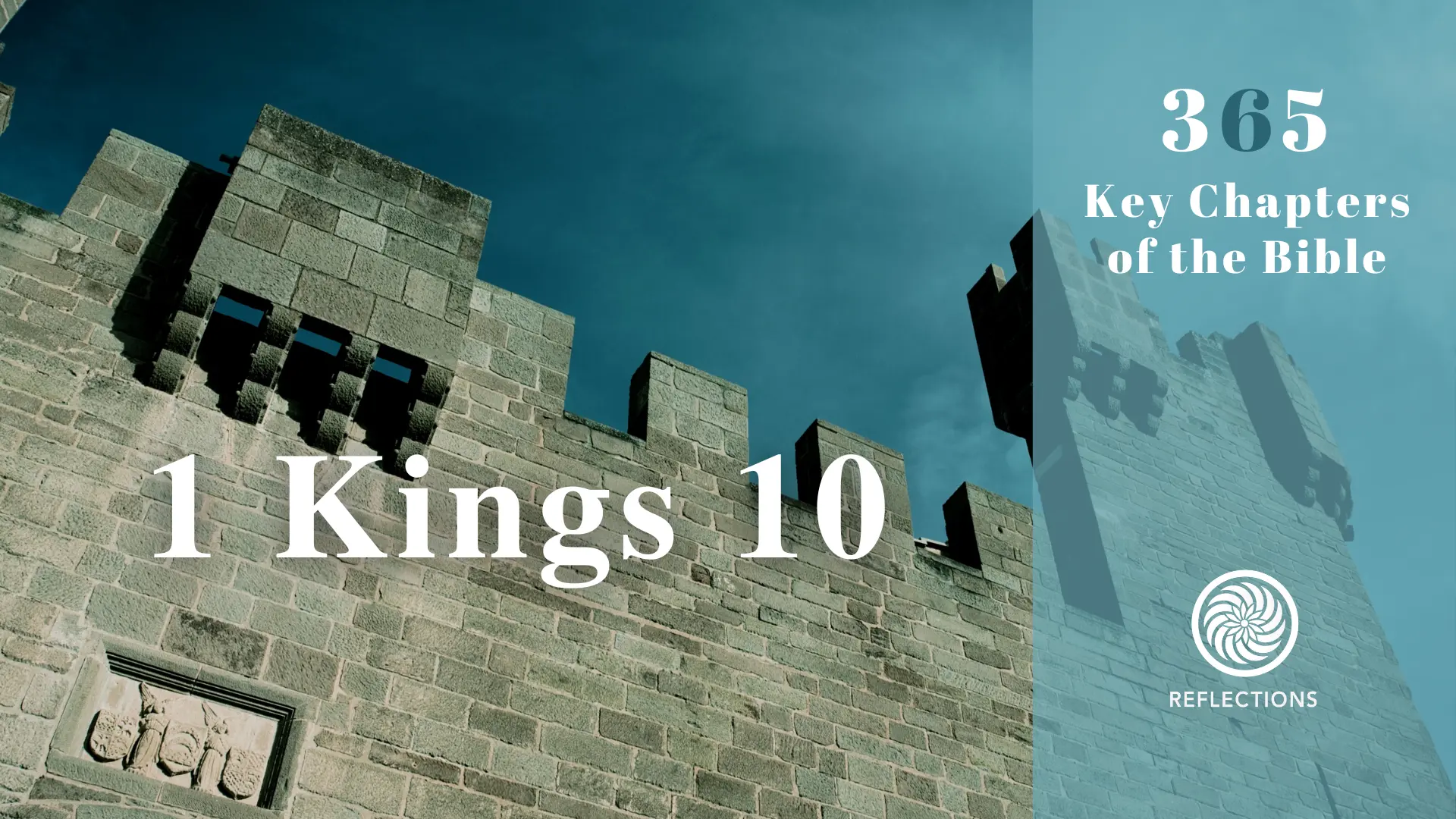Chapter 10 of 1 Kings describes perhaps one of the most significant periods in Israel’s history. Here we discover, for a brief moment, a time of prosperity, wealth, and peace, as King Solomon reigns over Israel with wisdom and righteousness. However, despite the appearance of blessing, we find in this chapter the beginning of disobedience to the commands the LORD gave Israel through Moses over 400 years ago:
When you enter the land which the Lord your God gives you, and you possess it and live in it, and you say, “I will set a king over me like all the nations who are around me,” you shall surely set a king over you whom the Lord your God chooses, one from among your countrymen … he shall not multiply horses for himself … He shall not multiply wives for himself … nor shall he greatly increase silver and gold for himself. (emphasis added, Deuteronomy 17:14–20)
Instead of multiplying power, pleasures, and wealth, the king was to be a man of God’s Word and a man who recognized that he was under the authority of the King of the Universe, the LORD.
The Glory of Solomon’s Reign
Such was the glory of Solomon’s righteous reign that rulers from around the world came to see his kingdom and observe his wisdom in the name of the LORD. When the queen of Sheba saw all that the Lord had blessed Solomon with, the text says, “there was no more spirit in her” (1 Kings 10:5). She was breathless and amazed. A foreigner and likely a pagan, she was so astonished by the wisdom of Solomon and the beauty and majesty of his court and people that she said,
Blessed be the LORD your God who delighted in you to set you on the throne of Israel; because the LORD loved Israel forever, therefore He made you king, to do justice and righteousness. (1 Kings 10:9)
Even she recognized the blessing the LORD had given to Solomon and his rule. In response, she left Solomon and his court many gifts of spices, gold, precious stones, and other valuable things.
Glorious Disobedience
Solomon’s great wisdom allowed him to secure many horses and chariots and much gold and silver. However, the Mosaic law expressly prohibited these practices (Deuteronomy 17:14–20). The LORD wanted his chosen people to depend on Him. The abundance of security and material wealth would turn the king, and hence the people, away from depending on the LORD. The king was to be a man after God’s heart, to fear and pursue Him, and to lead the people in the same, not rising above his countrymen (Deuteronomy 17:20).
Solomon multiplied for himself horses, chariots, gold, and silver, and in chapter 11, we see that he will multiply for himself wives. With this further disobedience, Solomon’s heart is led away from the LORD, and he reaps the consequences as we’ll see when his kingdom is divided.
Our Response
Solomon was a man of great wisdom. Yet, he did not wholly leverage that wisdom to pursue the LORD with his whole heart. He did not temper the capacities and potentials his wisdom afforded him with the fear of the LORD, and so, he eventually turned away from God to the pursuits of the world.
Hosea 13:6 says,
As they had their pasture, they became satisfied,
And being satisfied, their heart became proud;
Therefore they forgot Me.
The way of Solomon followed the way of the people of Israel. As they became comfortable and found rest and satisfaction in their possessions and security, they quickly forgot the LORD.
We may not be as wise and crafty as Solomon, but the call for us to pursue and depend on God is no less important. The LORD is the source of all truth, beauty, and goodness. We are mere sojourners in this world on a journey to our true country. The pursuits of the world will pass away, but the kingdom of God will endure forever. So, as God’s people, let us store up treasures in heaven rather than on earth. Let us seek first God’s kingdom and His righteousness in Jesus (Matthew 6:19–20, 33).
We are meant for better than the wealth and fame of the world. The daily exercise of remembering who and what we’re meant for safeguards us from becoming presumptuous in thinking we have everything figured out or don’t need God. It also prevents us from becoming resentful toward God when things don’t go our way, or covetous towards others whose circumstances may appear better than our own. The LORD is our provision, meaning, and hope, not the things of this world.
This teaching is based on Ken Boa’s Handbook to Scripture.
Related Reading & Resources:



